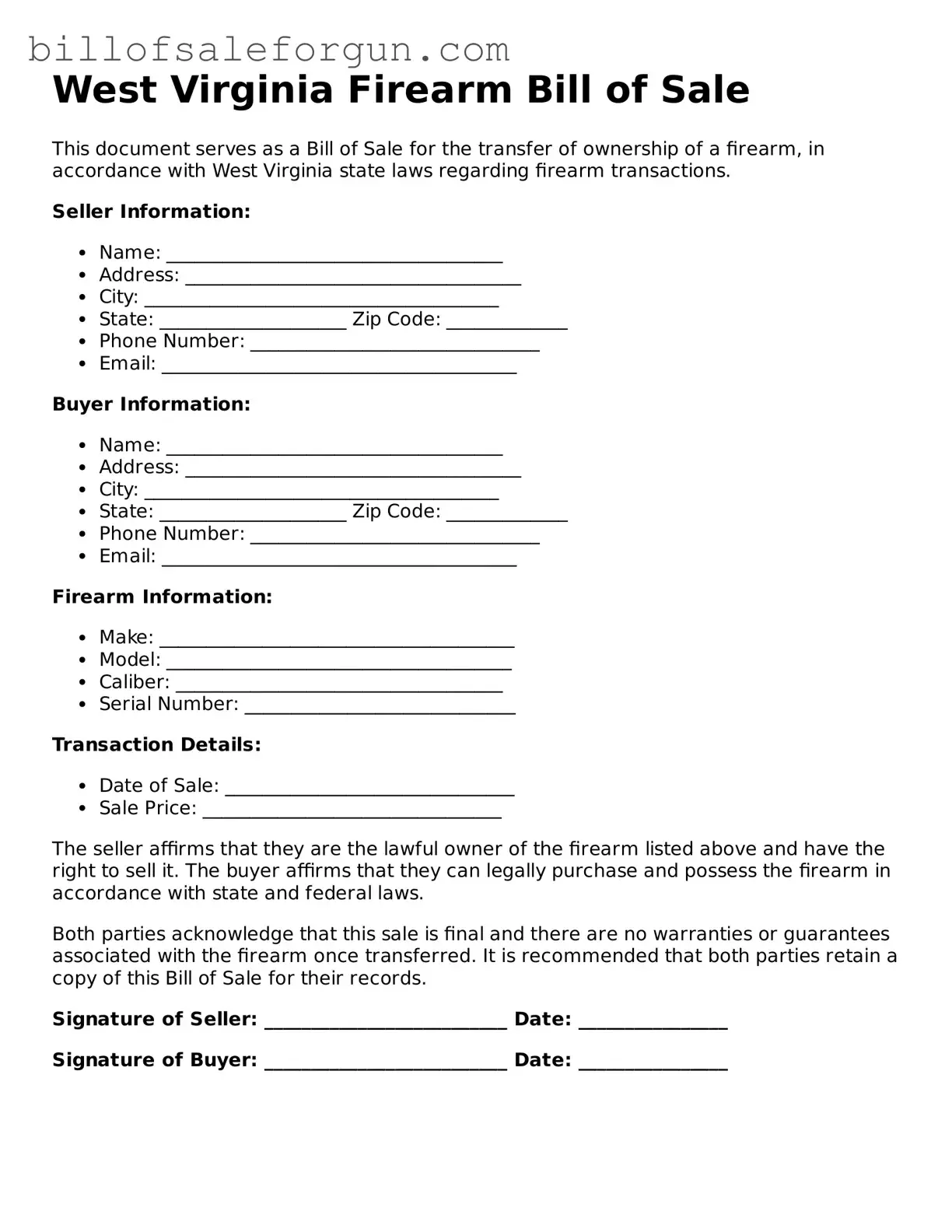Similar forms
The West Virginia Firearm Bill of Sale form is similar to a Vehicle Bill of Sale. Both documents serve as proof of transfer of ownership from one party to another. In the case of a vehicle, this form includes details such as the make, model, year, and vehicle identification number (VIN). Just like the firearm bill, it requires the signatures of both the seller and the buyer, ensuring that both parties acknowledge the transaction and the condition of the item being sold.
Another document akin to the Firearm Bill of Sale is the Boat Bill of Sale. This form is used when buying or selling a boat, and it includes similar information, such as the boat's make, model, and hull identification number. Both documents protect the interests of the buyer and seller by providing a written record of the transaction, which can be crucial for future reference or legal purposes.
The Home Sale Agreement shares similarities with the Firearm Bill of Sale in that it formalizes the transfer of ownership. This document outlines the terms of the sale, including the purchase price and any contingencies. Just as the firearm bill requires specific information about the firearm, the home sale agreement details the property being sold, ensuring that both parties are clear about what is included in the transaction.
A Lease Agreement is another document that bears resemblance to the Firearm Bill of Sale. While a lease does not transfer ownership, it establishes the terms under which one party can use another's property. Both documents require clear identification of the parties involved and a description of the item or property, ensuring that all terms are understood and agreed upon.
The Personal Property Bill of Sale is closely related to the Firearm Bill of Sale, as it covers the sale of various types of personal property. This document outlines the specifics of the item being sold, much like the firearm bill, including its condition and any warranties. Both serve as legal proof of the transaction, helping to protect the rights of both the buyer and the seller.
The Equipment Bill of Sale also shares characteristics with the Firearm Bill of Sale. This document is used for transactions involving heavy machinery or equipment, detailing the make, model, and serial number. Both documents ensure that the buyer receives clear ownership rights and that the seller is protected against future claims regarding the item sold.
A Motorcycle Bill of Sale is another document similar to the Firearm Bill of Sale. It includes information about the motorcycle, such as its make, model, and VIN, just like the firearm bill provides details about the firearm. Both documents require signatures from both parties, ensuring a smooth transfer of ownership and clear understanding of the transaction.
The ATV Bill of Sale is also comparable to the Firearm Bill of Sale. This form is used for the sale of all-terrain vehicles and includes details about the ATV, such as its make and model. Both documents serve to protect the interests of both the buyer and seller, providing a written record that can be referred to in case of disputes or questions about ownership.
Lastly, the Art Bill of Sale shares some similarities with the Firearm Bill of Sale. This document is used when buying or selling artwork and includes details about the piece, such as the artist, title, and medium. Like the firearm bill, it formalizes the transfer of ownership and helps prevent misunderstandings between the buyer and seller.
